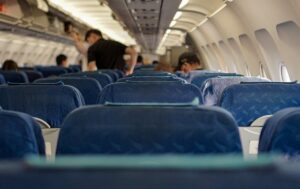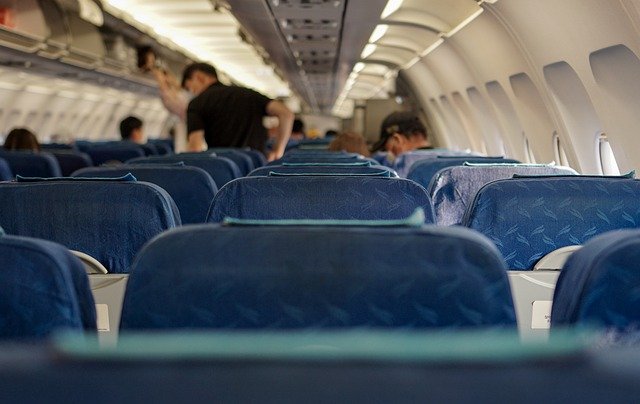-
IATF Resolution No. 84 removes requirement to reserve portion of an air carrier’s aircraft cabin as isolation area for ill or suspected to be ill passengers
-
All local government units instructed to relax health entry protocols on airline crew layovers due to emergency situations
-
Subic Bay Metropolitan Authority authorized to set up a corporate jet flight maintenance and crew layover hub at the Subic Bay Freeport Zone under a strict “bubble” concept
-
IATF expands coverage of foreign nationals allowed to enter the country

Air carriers are no longer required to reserve a portion of their aircraft cabin as an isolation area for passengers on board who are ill or are suspected to be ill, the Inter-Agency Task Force for the Management of Emerging Infectious Diseases (IATF) said.
The IATF requirement used to be part of health protocols implemented against the spread of coronavirus disease (COVID-19) on domestic flights.
IATF Resolution No. 84 dated November 19 states that this requirement was removed upon the recommendation of the Department of Transportation (DOTr) and Civil Aviation Authority of the Philippines (CAAP), with the concurrence of the Department of Health (DOH).
In a statement, presidential spokesperson Harry Roque, Jr. said the IATF decision was made based on increased information on how COVID-19 is transmitted in closed settings, information not available before.
Roque added that more improved health protocols are now in place from boarding through landing, such as the requirement for a negative COVID-19 testing result and screening of symptoms in passengers, to the use of High Efficiency Particulate Air (HEPA) filters in aircraft that trap all contaminants in the air, including the novel coronavirus, with 99.99% efficiency.
It was also pointed out that domestic flights are of short duration only, generally not exceeding 1.5 hours.
Moreover, according to CAAP, removing this requirement does not contravene World Health Organization and International Civil Aviation Organization guidelines and protocols.
DOTr will issue the necessary amendatory guidelines to implement IATF Resolution 84.
The inter-agency task force has also instructed all local government units (LGUs) to relax health entry protocols imposed upon airline crew layovers/positionings that are due to emergency situations such as typhoons, volcanic activities, diversions and emergency landings, other similar unforeseen and time-sensitive evacuations.
Health entry protocols in said emergency situations should be relaxed by exempting such instances from LGUs’ respective test-upon-arrival requirement, IATF said.
It also ordered the permitting of airline crew to be temporarily billeted in accommodation establishments under a “bubble” concept with the LGUs’ supervision.
For this purpose, the Department of the Interior and Local Government (DILG) has been instructed to coordinate with all LGUs to align their health entry protocols with the orders of IATF Resolution 84.
CAAP is likewise instructed to supervise and police the implementation of these activities.
And as recommended by DOTr and CAAP, the Subic Bay Metropolitan Authority (SBMA) has been authorized to set up a corporate jet flight maintenance and crew layover hub at the Subic Bay Freeport Zone under a strict “bubble” concept, without prejudice to visa or work permit requirements as imposed by applicable laws.
IATF Resolution 84 also expands the coverage of foreign nationals who are allowed to enter the country.
These include foreigners with visas issued by the Bureau of Immigration pursuant to Section 9(d) of Commonwealth Act No. 613 (Philippine Immigration Act of 1940). These are those foreigners who seek to enter the Philippines solely to carry on trade between the Philippines and the foreign state of which he is a national. These also include those with visas issued by the Authority of the Freeport Area of Bataan, Cagayan Economic Zone Authority, and Clark Development Corporation.
Last November 1, the government reopened the country’s doors to foreign nationals, particularly those with investors’ visas.
IATF also approved that age restrictions for those below 15 years old and those 65 years old above in areas under modified general community quarantine and are traveling for tourism purposes may be relaxed as determined by the LGUs and guidelines to be issued by the Department of Tourism, DOH, and DILG. – Roumina Pablo





